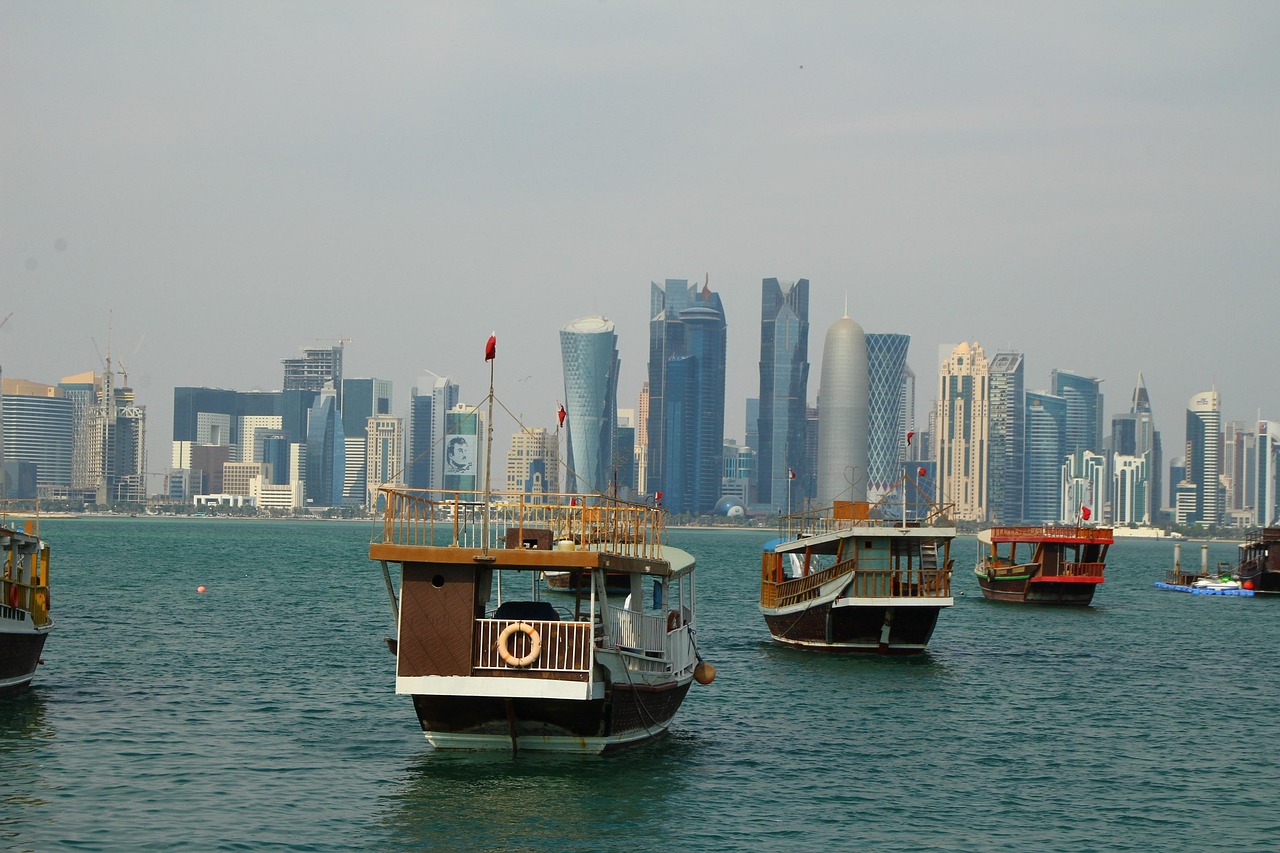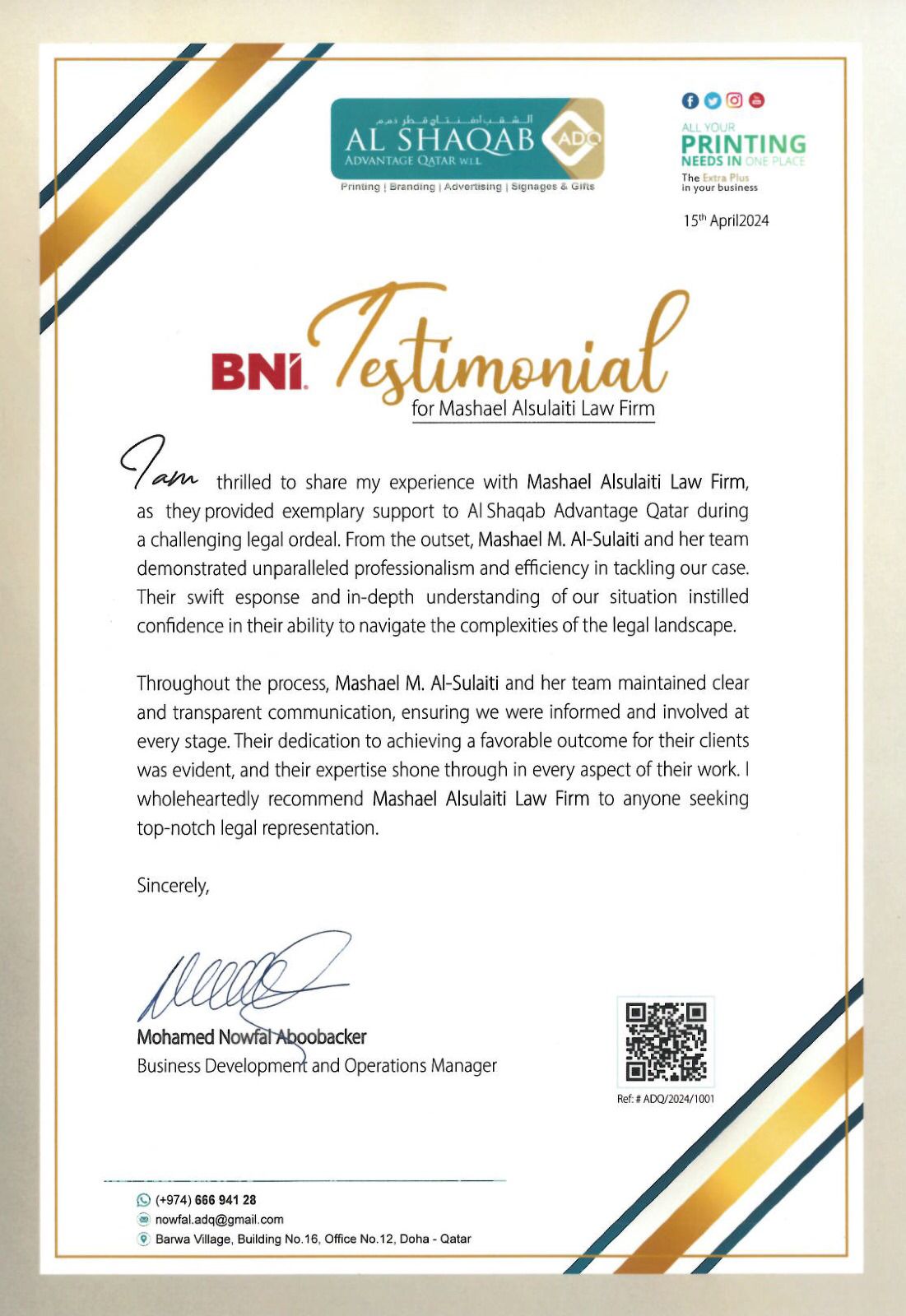Qatar’s Legal Reforms to Attract Foreign Investment

In recent years, Qatar has strategically transformed its legal and regulatory framework to encourage foreign direct investment and private sector participation. These developments are not arbitrary. They are directly aligned with the objectives of Qatar National Vision 2030, which seeks to diversify the economy, attract global expertise, and build a knowledge-based society. Through a series of impactful laws and initiatives, the State of Qatar has created one of the region’s most attractive environments for international investors.
Foreign Investment Law and 100% Ownership
A cornerstone of this reform agenda is Law No. 1 of 2019 on Regulating the Investment of Non-Qatari Capital in Economic Activity. This law marked a significant liberalization of the Qatari market by allowing 100% foreign ownership in most economic sectors. Previously, foreign investors were generally required to partner with Qatari nationals holding a minimum of 51% ownership. Now, under the new regime, foreign investors may establish companies with full ownership, provided they receive the necessary approvals from the Ministry of Commerce and Industry (MOCI). Certain sensitive sectors such as banking and insurance remain subject to restrictions, but the overall landscape has dramatically opened.
Incentives provided under this law include customs exemptions, tax benefits, the right to repatriate profits and capital, and land allocation for strategic projects. These benefits are designed to foster confidence and long-term commitment among international investors.
Free Zones and Special Economic Areas
To complement the national investment law, Qatar has developed robust free zone regimes under the supervision of the Qatar Free Zones Authority (QFZA), established by Amiri Decree No. 21 of 2017. Investors in these zones, such as Ras Bufontas and Umm Al Houl, enjoy unparalleled advantages, including 100% foreign ownership, corporate tax exemptions for up to 20 years, zero customs duties, and full profit repatriation. These zones are designed to support targeted sectors such as logistics, aviation, technology, and advanced manufacturing, and are backed by world-class infrastructure and fast-track licensing processes.
In addition, the Qatar Financial Centre (QFC) and the Qatar Science and Technology Park (QSTP) offer specialized legal and regulatory environments tailored for financial services and tech-driven businesses. The QFC, governed by its own legal code based on English common law, applies a 10% corporate tax only on profits generated within Qatar and offers no withholding tax, no capital gains tax, and no personal income tax. The QSTP, focused on research and development, provides full tax exemptions, 100% foreign ownership, and seamless access to Qatar’s innovation ecosystem.
Real Estate Ownership by Non-Qataris
An equally significant development has been the issuance of Law No. 16 of 2018 and the Council of Ministers Decision No. 28 of 2020, which expanded the rights of non-Qataris to own and use real estate in designated areas. These areas include prestigious locations such as The Pearl, Lusail, West Bay Lagoon, Msheireb, and Al Dafna. The law allows foreign individuals and companies to purchase freehold property in nine zones and obtain usufruct rights for up to 99 years in sixteen other areas.
Real estate investors benefit not only from legal clarity but also from attractive residency incentives. For example, an investment of QAR 730,000 qualifies the investor for a renewable five-year residency permit, while an investment exceeding QAR 3.65 million may qualify for a Permanent Residency Card. This card offers access to healthcare, education, and exclusive investment opportunities, privileges previously reserved for Qatari citizens.
A Tax System Designed to Attract Capital
Qatar’s tax framework is another factor that enhances its appeal to foreign investors. The Income Tax Law (Law No. 24 of 2018) provides that foreign-owned entities pay a flat 10% tax on net profits derived from business activities in Qatar. Notably, Qatari citizens and GCC nationals are exempt from this tax. Moreover, Qatar imposes a 5% withholding tax on certain payments to non-residents, such as royalties and technical services.
Importantly, there is no personal income tax in Qatar, and individuals, regardless of nationality—are not taxed on their salaries, dividends, capital gains, or inheritance. The absence of capital gains tax, combined with no tax on property sales, makes Qatar an especially attractive market for real estate and long-term asset investment.
Companies operating within free zones and under QFC or QSTP regimes may benefit from complete tax exemptions or special treatment, further reducing the effective tax burden. Additionally, Qatar has signed over 80 double taxation agreements (DTAs) with major global economies to prevent investors from being taxed twice on the same income.
Labor Market Reforms
Recognizing the integral role of human capital in economic growth, Qatar has also enacted pioneering labor law reforms. These include the abolition of the exit permit system and the requirement for No-Objection Certificates (NOCs) to change employers, under Laws No. 13 of 2018, 19 of 2020, and 18 of 2022. Moreover, Law No. 17 of 2020 introduced a non-discriminatory minimum wage, the first of its kind in the Gulf region. Together, these reforms have significantly improved working conditions and enhanced the attractiveness of Qatar as a destination for global talent.
Supporting Qatar National Vision 2030
All of these reforms, whether in investment, taxation, real estate, or labor, are closely aligned with Qatar National Vision 2030. This long-term strategy emphasizes economic diversification, sustainable development, and private sector engagement. By fostering a welcoming legal environment, Qatar is building a resilient, globally integrated economy that can thrive beyond the oil and gas sector.
As a result, the country has gained recognition as one of the most stable and transparent investment destinations in the Middle East. Its combination of legal certainty, competitive tax policies, and forward-thinking economic planning positions it as a leading jurisdiction for foreign investors seeking long-term growth.
Legal Support for Investors
At Mashael Alsulaiti Law Firm, we understand the intricacies of Qatar’s evolving legal and regulatory landscape. Our multilingual team provides tailored legal counsel to foreign investors, companies, and individuals looking to establish a presence in Qatar. From business incorporation and licensing to real estate acquisitions and regulatory compliance, we are committed to protecting our clients’ interests and ensuring a smooth, successful investment journey in Qatar.
Soha Dammak
Legal Counsel

